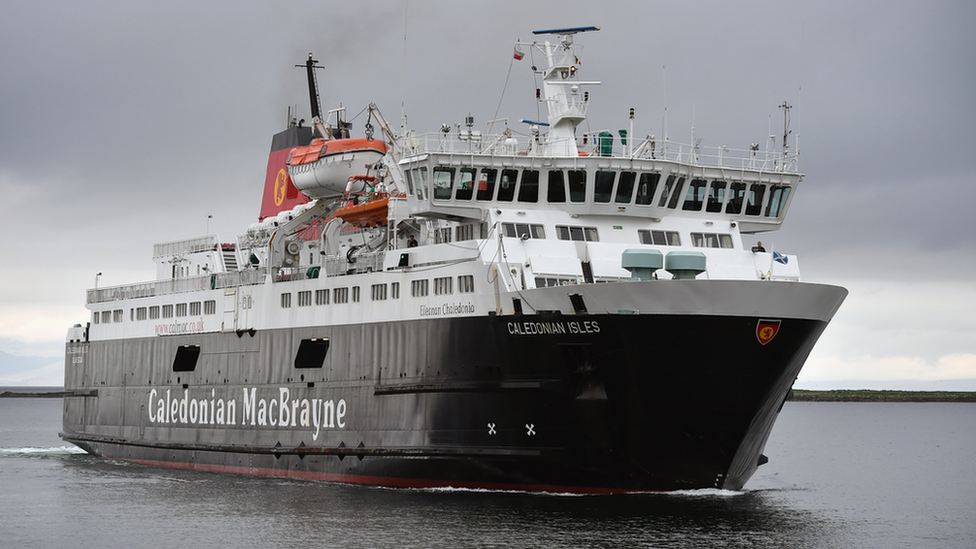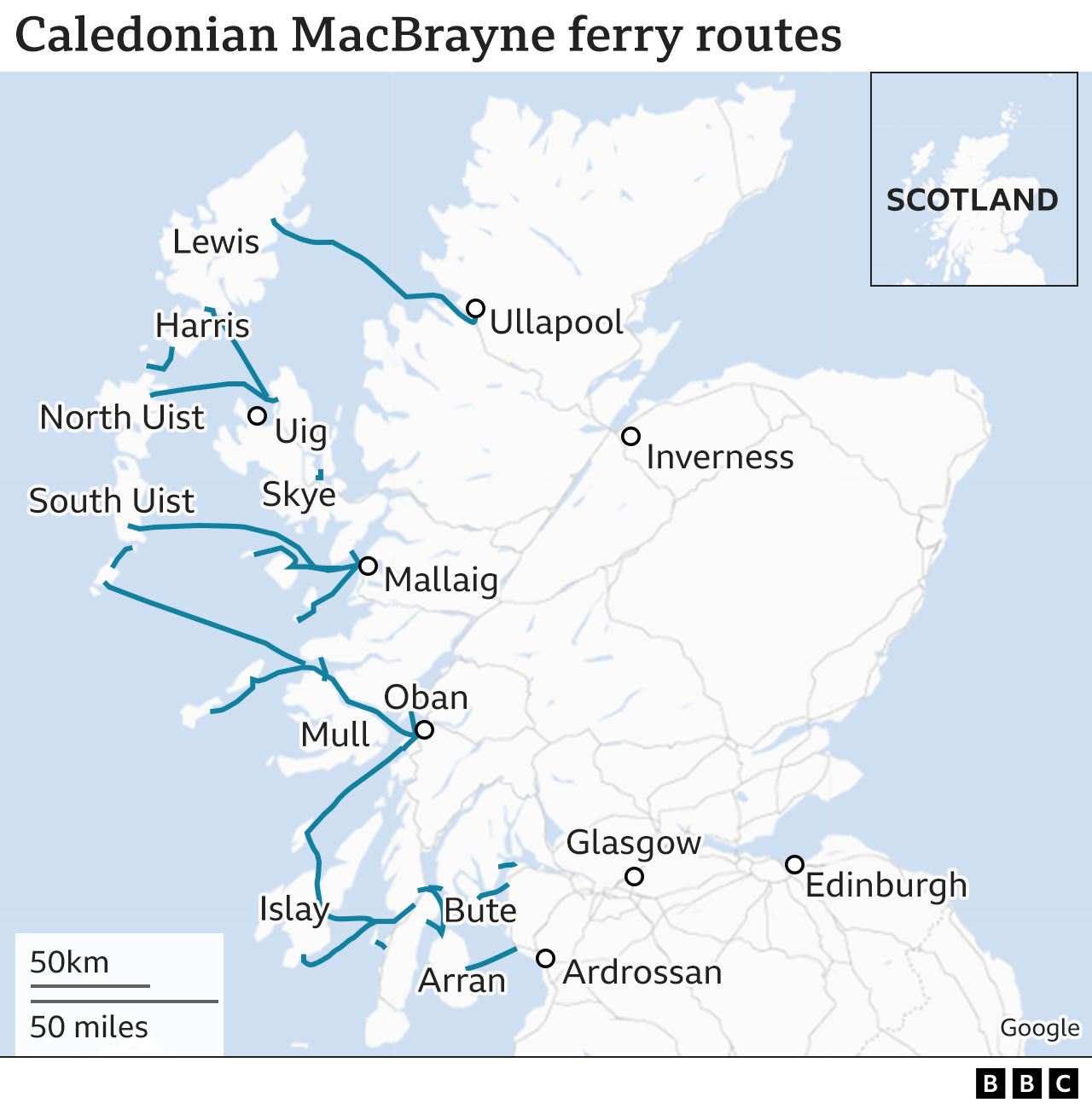Ferry changes needed to end 'blame-shifting culture' - MSPs
- Published
- comments

Delays have hit the return of the MV Caledonian Isles from its annual overhaul
Sweeping changes are needed to Scotland's ferry network but Calmac should keep the west coast contract for another decade, MSPs have said.
Holyrood's Transport Committee pointed to problems such as an ageing fleet and a lack of resilience in the network.
It also said the current structure led to a "blame-shifting culture".
However, it said it would support awarding Calmac the contract for another 10 years to ensure continuity of service and avoid disruption.
The committee said the key message from its inquiry was that ferry services were not good enough and needed to change.
It said overall dissatisfaction was high, particularly on the west coast routes, with people speaking of a feeling of being abandoned.
The report said people living on islands or other ferry-dependent communities viewed the ferry as "literally lifeline services".
It said consistently poor or unreliable connections could risk leaving previously flourishing and robust communities fragile and potentially unviable.
Calmac, which is wholly owned by Scottish ministers, provides ferry services to the 22 islands and four peninsulas on the Clyde and Hebrides.
Its current contract runs until October 2024.

The committee said Calmac should continue to run the service but it recommended changes to other parts of the system.
CMAL, which owns the ferries and the harbours, should become part of the Scottish government agency Transport Scotland, it said, recommending a new arm called "Ferries Scotland".
This could help streamline decision-making, improve understanding within Transport Scotland and address some of the issues surrounding the current "pass the parcel" culture of not taking responsibility, the report said.
The committee also said the "churn" in the number of government ministers who had been responsible for ferries was unhelpful in tackling the problems.
It said new Transport Minister Fiona Hyslop was the eighth person in the role in a decade.

Fiona Hyslop is the eighth minister responsible for ferries since December 2012
Committee convener Edward Mountain said: "As our report shows, a frequent change in transport ministers means problems are not being solved.
"Having worked with Fiona Hyslop on this report as deputy convener of the committee, we know she has experience of the issues covered and wish her well in her new role."
The Tory MSP said he hoped the report would pave the way for a ferry service that is future-proofed, compatible with Scotland's net zero goals and meets the needs of islanders.
Meanwhile Labour MSP Katy Clark, who represents West Scotland, suggested the Scottish government should ask Westminster for emergency funds to support the fleet.
She said: "The economies of island communities are taking a huge hit and islanders can't rely on the service to get them to medical appointments, work or other commitments on the mainland.
"The Scottish government need to own the situation and obtain the emergency funding to procure new vessels - including, if necessary, asking the Westminster government to provide assistance."
The average age of the 37 vessels leased to CalMac and NorthLink is currently 24.5 years, with one being as old as 40.
One of the recommendations in the report is that the Scottish government should set out concrete steps towards reducing the average age of its vessels to 15 years.
It said ferry design should be standardised to achieve best value and efficiency, both in the construction and operation of the vessels.
And it should be considered whether routes currently served by major vessels could be better provided by a higher number of smaller vessels.
A Scottish government spokeswoman said it welcomed the report and its strong emphasis on hearing from the communities who use the services.
She added: "We will carefully consider the recommendations of the report and respond to the committee in due course."